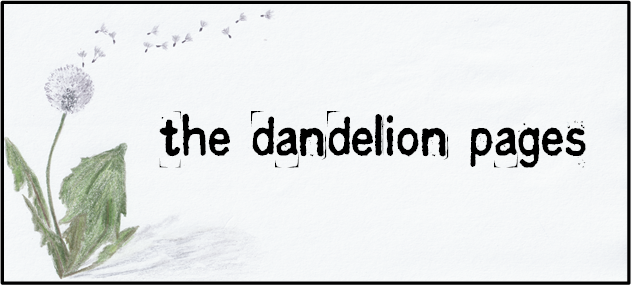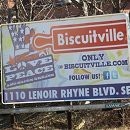Dear Jeff,

The tops of your heads, three of them, were singularly familiar, arranged in a row in the theater. I’m guessing you were as surprised to see us as we were, you. None of us was surprised that we sat pretending it wasn’t happening, this double blade of long-evaded proximity.
It was already a brave act for us to have purchased the tickets, driven there, come inside the popcorn-infused lobby. Fellowship of the Ring was released just after our firstborn infant son died. We saw it on the big screen eighteen times, escaping to Middle Earth time and again. We knew every word, every leaf in the forests, every blade of Shire grass. And today, in select small theaters across the country, it was shown again, and the lure was too great for me. I was giddy. I was terrified. I knew it would serve as a trauma trigger, but I longed to hear Cate Blanchett’s first whispered words of Elvish. When I did, my Kleenex couldn’t keep up.
But you know that story, the one about John.
I did not know there would be two deep losses sitting on my chest, squeezing out tears.
Jeff, you and I are cowards. You ran out of the room as soon as the credits began, citing an aversion to Enya (fully credible yet punctually convenient) and I did not follow you. Instead, my heart commandeered my feet, and P.J. watched in awe as I walked over and took your empty seat beside your wife and daughter. I looked them both in the eye and wordlessly threw a wide-armed, imbued hug around each of them.
Their replies were contained in this: They hugged back. I leaned over and whispered something. Then I turned away, and P.J. and I left the theater.
Perhaps the hugs were a manifestation of the bond they and I share in being, not civilians, but the close cabinet advising you during your lifelong internal war, destined to receive the brunt of the fallout.
But you know that story, too.
The only sensible reason to write this letter to you, then, is to fill you in on the stories you don’t know, things that have come to pass in the two and a half years since our estrangement.
Chester died. If you had exercised the courage to ask after him, P.J. would have shown you the hand-blown crystal pendant she wears that contains some of his ashes. She would have spat, “He’s right here,” because you weren’t there for us when he died. We have Molly now. You wouldn’t like her. She licks faces joyfully and you’d find the germs repulsive. I think sometimes your extensive understanding of biology serves you ill. Dog slobber can be wiped off but the unmerited, boundless affection of a dog heals. It helps with the internal war.
We still have the cabin that caused you to resent our families’ financial disparity, our anxiety over your resentment, your overly vehement denial of the resentment. I consider it ironic that the minivan you saw us drive away from the theater yesterday is the one we bought so that the six of us – kids included – could visit the Blue Ridge Parkway for picnics, Pilot Mountain and Hanging Rock, without having to carpool. We have a van without you in it.
James’ sixteenth birthday was yesterday. I have to believe you noticed, when he went to the bathroom during the movie, how tall he’s grown since you last saw him at thirteen, how he carries himself now. He dances at school. You’d be proud if you knew that. Your favorite movie is Billy Elliott. He rarely sees your daughter in the halls at school because their schedules differ. They smile and speak and don’t mention the war.
We’re both still in our jobs, though I’m thinking of leaving mine for a new role. It’s a god- damned shame I can’t tell you about my co-worker, because you taught me almost everything I know about bitterness and cursing, and the things you would have to say about her would be gloriously colorful. Yet as I write this, I’m smiling sadly, because one of the things helping me endure her is wanting to be utterly unlike you, driven from place to place by your intolerance of those less brilliant than you. Jeff, you are never going to get away from stupidity. It’s endemic. You’re older than I am. You should have learned this by now.
The house looks mostly the same. I tried to change the light fixtures in the hallway, but now one doesn’t work and we need a real electrician. We have an espresso machine that you would want to marry. The place mats on the table are a bit more frayed now than they were when we played table games, and we put in a wireless mesh system, which would make your phone work better if you were sitting in your customary spot on the sofa, next to one of the nodes. I remember how you’d look up funny things for us on your phone while I curled up on one end of the sectional sofa and listened until I was muzzy and fell asleep. I was so comfortable around you that I could allow myself to be that vulnerable. We were tribe.
We don’t clean any more because no one comes over to visit now. The pain of the break-up was intense and we have since been in strong accord that we don’t want friends any more, not the kind who become like family, the kind you see almost every weekend, the kind you gladly help move in and out of houses and put as emergency contacts on your kids’ school forms. We would rather be alone.
Our therapist says this isn’t healthy. So once in a while, we consider couples who might replace you. The candidates are scant and have turned out to be too busy in life, saturated, or overtly religious upon closer inspection, or mismatched in little ways that would matter more than a little. You spoiled us. Unattainably stringent criteria serve our unwillingness well. Our therapist throws up his hands and has probably given up on it.
Yesterday, I came home from the theater and vacuumed the whole house for the first time in many months, as though someone would be coming over to visit soon. I got dirt out of the corners and made sure the coffee table was clean enough for sock feet that would not be placed there.
Then I cried.
You were a coward in the end, too. There were months of irritation, characterized by vague excuses, preceding your relief when I finally asked if you were weary of us. You could not bring yourself to tell us that you had become averse to spending time in our company.
Then you said that I needed to get my head fixed and check back in with you when that had happened.
I know you had to push me away because of the insanity during my hypomania, before the suicide attempt, before I knew I was bipolar. I know you lost your partner to suicide decades before, and that I landed a massive bomb in the no-man’s-land of your internal war.
I also know we had been through strikingly similar episodes by your side, when your head was a war zone, and we had not defected. We had stayed.
I did get my head fixed. As much as it could be fixed.
We loved you. We loved you like siblings, like chosen family. Our kids were in diapers together. We considered you when making future plans for our lives because we could not countenance you not being in them. We loved you for your imperfections and struggles.
That is why we sat at our dinner table stunned, loving you, angry as hell, bleeding, scarcely able to speak to each other, aching nigh-unbearably from the break and the knowledge of what the future would bring: A slow, more graceful death of the friendship, a drawn-out version of the pain we were feeling.
We spent weeks deliberating and recognized in the end that we could not, would not, endure that pain a second time. I wrote you the goodbye letter.
I think I told you everything. I’m a good writer.
We have spent two years avoiding restaurants you frequent, looking out for your bright blue car in parking lots.
Jeff, you and I are cowards. We send the other parents with our children to school events. I dream about running into you somewhere, and sometimes there is reconciliation and sometimes there is rejection. Both sting when I wake and remember.
We still love you. We miss you madly. We ache for you sometimes, our missing family. I shouted that in the language of untamed hugs yesterday.
I leaned over and whispered to your wife, “Give Jeff one from us, too.” Those were the only words to say. There were no others.
I still think we made the right choice, the choice to euthanize the friendship. If seeing the top of your head hurt this badly, imagine looking into your eyes. Maybe I would see love. Maybe I would see hatred.
Today, I will get out the Swiffer and dust the main floor of the house, knowing no one will be coming to visit.
Love,
Amy






